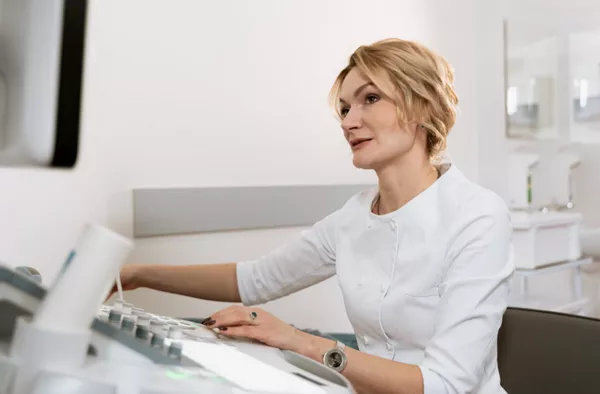Attention-Deficit/Hyperactivity Disorder (ADHD) is a common neurodevelopmental condition that affects millions of individuals worldwide. Among its subtypes, inattentive ADHD—characterized by symptoms such as difficulty sustaining attention, forgetfulness, and poor organizational skills—can significantly impact daily functioning. While medication is a common treatment, many individuals and families seek non-pharmacological interventions to manage symptoms effectively. This article explores a variety of strategies to help individuals with inattentive ADHD thrive without medication, focusing on lifestyle changes, behavioral therapies, educational accommodations, and supportive techniques.
Understanding Inattentive ADHD
Characteristics and Challenges
Inattentive ADHD is marked by a persistent pattern of inattention and distractibility, often without the hyperactivity or impulsivity seen in other ADHD subtypes. Common symptoms include:
Difficulty Sustaining Attention: Challenges in focusing on tasks, conversations, or activities for extended periods.
Poor Organization Skills: Struggles with managing time, tasks, and personal belongings.
Forgetfulness: Frequent forgetfulness of daily activities, commitments, or important information.
Avoidance of Tasks Requiring Sustained Effort: Tendency to procrastinate or avoid tasks that demand prolonged mental effort.
These symptoms can impact academic performance, professional productivity, and personal relationships. However, with the right strategies and support, individuals with inattentive ADHD can develop skills to manage their symptoms and improve their quality of life.
Behavioral Therapies
Cognitive Behavioral Therapy (CBT)
Cognitive Behavioral Therapy (CBT) is a well-established therapeutic approach that can help individuals with inattentive ADHD:
Identifying Negative Thought Patterns: CBT helps individuals recognize and challenge negative thoughts that contribute to feelings of inadequacy or frustration.
Developing Coping Strategies: Techniques such as breaking tasks into smaller, manageable steps and using positive self-talk can improve focus and task completion.
Improving Organizational Skills: CBT can teach practical strategies for organizing time, tasks, and personal spaces, reducing the chaos often associated with inattentive ADHD.
Behavioral Interventions
Behavioral interventions can provide structure and consistency, essential for managing inattentive ADHD:
Positive Reinforcement: Rewarding positive behaviors, such as completing tasks or following instructions, can encourage the repetition of these behaviors.
Routine and Structure: Establishing daily routines and clear expectations can help individuals stay organized and reduce distractions.
Task Management Tools: Utilizing planners, to-do lists, and digital apps can aid in tracking tasks and deadlines, promoting accountability and organization.
Educational Accommodations
Support in Academic Settings
Educational accommodations can significantly enhance the learning experience for students with inattentive ADHD:
Individualized Education Plans (IEPs): IEPs provide customized educational goals and strategies tailored to the student’s needs, ensuring appropriate support and resources.
Extended Time on Tests: Allowing extra time for tests and assignments can alleviate pressure and improve performance.
Preferential Seating: Seating arrangements that minimize distractions and maximize focus can enhance learning and participation.
Tutoring and Academic Support: Access to tutoring, study groups, or academic coaching can provide additional guidance and reinforcement.
Teaching Strategies
Educators can implement strategies to support students with inattentive ADHD in the classroom:
Interactive and Engaging Lessons: Using multimedia, hands-on activities, and interactive teaching methods can capture and maintain students’ attention.
Frequent Breaks: Allowing short breaks between tasks can help students recharge and refocus.
Clear and Concise Instructions: Providing clear, step-by-step instructions can reduce confusion and improve task completion.
Positive Feedback and Encouragement: Reinforcing positive behaviors and achievements can boost self-esteem and motivation.
Lifestyle Changes
Diet and Nutrition
Diet and nutrition play a crucial role in managing inattentive ADHD symptoms:
Balanced Diet: A diet rich in whole foods, including fruits, vegetables, lean proteins, and whole grains, can support overall brain health and function.
Omega-3 Fatty Acids: Omega-3 fatty acids, found in fish, flaxseeds, and walnuts, have been shown to improve attention and cognitive function.
Avoiding Sugar and Additives: Reducing the intake of sugary foods, artificial additives, and preservatives can minimize hyperactivity and improve concentration.
Exercise and Physical Activity
Regular physical activity can have a positive impact on ADHD symptoms:
Aerobic Exercise: Activities such as running, swimming, and cycling can improve attention, executive function, and mood regulation.
Mind-Body Practices: Yoga, tai chi, and mindfulness meditation can enhance focus, reduce stress, and promote emotional regulation.
Outdoor Activities: Spending time in nature and engaging in outdoor activities can provide sensory stimulation and improve overall well-being.
Mindfulness and Self-Regulation Techniques
Mindfulness Meditation
Mindfulness meditation can help individuals with inattentive ADHD develop self-awareness and improve focus:
Breathing Exercises: Practicing deep breathing techniques can calm the mind and enhance concentration.
Body Scan Meditation: Body scan meditation involves focusing on different parts of the body, promoting relaxation and mindfulness.
Mindful Awareness: Encouraging individuals to be present in the moment and observe their thoughts without judgment can reduce distractibility and improve attention.
Self-Regulation Techniques
Developing self-regulation skills can help individuals manage their behaviors and emotions more effectively:
Emotional Regulation Strategies: Techniques such as cognitive restructuring, emotion identification, and relaxation exercises can help individuals manage emotional responses.
Impulse Control: Teaching strategies for delaying gratification and thinking before acting can reduce impulsive behaviors.
Problem-Solving Skills: Encouraging individuals to break problems into smaller, manageable steps and brainstorm solutions can improve decision-making and task completion.
See Also: Does ADD Go Away with Age?
Parental and Family Support
Creating a Supportive Home Environment
Parents and family members can play a crucial role in supporting individuals with inattentive ADHD:
Consistent Routines: Establishing consistent daily routines can provide structure and predictability, reducing stress and improving focus.
Clear Expectations and Boundaries: Setting clear expectations and boundaries can help individuals understand their responsibilities and stay on track.
Positive Reinforcement: Providing praise and rewards for positive behaviors can reinforce desired actions and boost self-esteem.
Collaborative Communication
Open and collaborative communication between parents, educators, and healthcare professionals can enhance support for individuals with inattentive ADHD:
Regular Check-Ins: Regularly checking in with teachers, tutors, and therapists can ensure that strategies are effective and adjustments are made as needed.
Sharing Information: Sharing information about the individual’s strengths, challenges, and progress can foster a supportive and coordinated approach.
Advocacy: Advocating for appropriate accommodations and support services in educational and professional settings can ensure that individuals receive the resources they need to succeed.
Alternative Therapies and Complementary Approaches
Neurofeedback
Neurofeedback is a form of biofeedback that involves training the brain to improve self-regulation and attention:
Brainwave Training: Neurofeedback sessions involve monitoring brainwave activity and providing real-time feedback to help individuals learn to regulate their brain activity.
Improved Attention and Focus: Research suggests that neurofeedback can improve attention, reduce distractibility, and enhance cognitive function in individuals with inattentive ADHD.
Occupational Therapy
Occupational therapy can help individuals develop skills and strategies for managing daily tasks and improving functional abilities:
Sensory Integration: Occupational therapists can work with individuals to improve sensory processing and integration, reducing sensory overload and enhancing focus.
Task Analysis and Adaptation: Occupational therapists can help individuals break down tasks into manageable steps and develop strategies for completing tasks effectively.
Social Skills Training
Social skills training can help individuals with inattentive ADHD develop effective communication and interpersonal skills:
Role-Playing and Practice: Practicing social interactions through role-playing and guided practice can improve social confidence and competence.
Communication Strategies: Teaching active listening, assertiveness, and empathy can enhance social interactions and relationships.
Conclusion
Helping individuals with inattentive ADHD thrive without medication requires a comprehensive and personalized approach that addresses their unique challenges and strengths. Through a combination of behavioral therapies, educational accommodations, lifestyle changes, mindfulness practices, and family support, individuals with inattentive ADHD can develop effective strategies for managing their symptoms and achieving their full potential.
By raising awareness and promoting understanding of inattentive ADHD, educators, employers, healthcare professionals, and families can create supportive environments that foster success and well-being. With the right support and resources, individuals with inattentive ADHD can navigate their academic, professional, and personal journeys with confidence, resilience, and a sense of empowerment. While medication can be an effective tool for managing ADHD symptoms, non-pharmacological interventions offer valuable alternatives that can enhance quality of life and promote long-term success for individuals with inattentive ADHD.
Related topics:



























